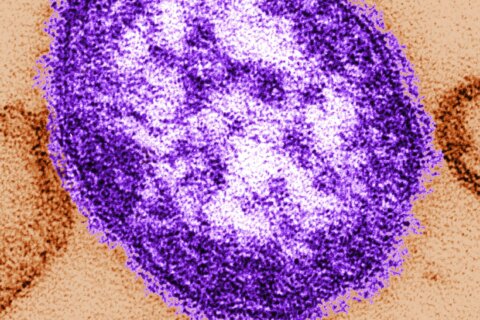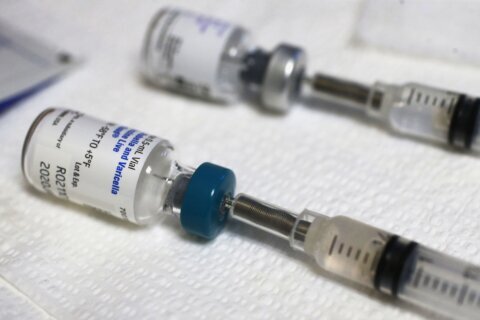Confirmed cases of measles in the D.C. region, the most recent being in the nation’s capital, have led to many questions for doctors. The questions about the illness are coming from not only those not vaccinated for the illness, but those who are, as well.
“I do get a lot of questions about measles,” said Dr. Gabrina Dixon, a pediatrician at Children’s National Hospital.
- Q:
How effective is the measles vaccine?
- A:
With each confirmed case of the illness, your local health department will likely send out locations where the person was, to warn against possible points of exposure for others. That leads to questions about how protected someone is if they’ve received the vaccine.
“After one shot of the vaccine, you’re 93% protected against measles. After the second shot, you are 97% protected,” Dixon said.
Getting the vaccine results in lifelong protection from the illness, according to Dixon.
- Q:
When is the right time to get vaccinated?
- A:
The vaccine, according to Dixon, is usually given to children between 12 and 15 months old.
With most schools requiring the vaccine, most people born after 1968 have been vaccinated. People born between 1957 and 1968 may need to be tested for protection, because during that period some vaccines did not contain the “live attenuated virus,” Dixon said.
- Q:
Can someone who is vaccinated catch the measles?
- A:
Dixon said while the vaccine is effective for people with a strong immune system, those who may be immunocompromised could be at risk.
“When that immune system is weakened due to a condition, maybe due to medications, that is where we can see it pop up,” Dixon said.
People who have weakened immune systems should talk to their doctor if they believe they were exposed to the illness.
- Q:
How contagious is measles?
- A:
Measles is very, very contagious, according to Dixon, which is why she advocates for getting vaccinated against the illness.
“If you have a room of 10 people breathing the same air in the same room, and one of those persons gets measles, it’ll spread to nine out of the 10 people,” Dixon said.
Dixon said this fact has led to the high spread seen in communities of people who are unvaccinated.
- Q:
How long does it take for symptoms to appear?
- A:
Dixon said symptoms of measles can set in anywhere from 72 hours to two weeks after exposure, which is why doctors encourage monitoring for the illness for up to two weeks.
“You start seeing signs like fever, cough, runny nose. But, again, for some people, it can take up to a week or two, but usually after 72 hours of exposure, you may start seeing symptoms,” she said.
- Q:
Can measles look like other illnesses?
- A:
Dixon said the answer is yes, because the illness in many cases starts out like a common cold, with symptoms like a fever, runny nose or cough.
“The telltale sign of measles is this rash, but that rash comes later, and again, you’re already contagious before you get this rash,” she said.
Measles can also be confused for allergies during allergy season, as it can bring on itchy or watery eyes.
- Q:
Is there a treatment for measles?
- A:
There is no treatment for measles, according to Dixon, so all doctors can do is provide supportive care to patients with the illness.
“Some people, unfortunately, can succumb to measles. It can lead to death, because again, there is no treatment for measles,” Dixon said.
- Q:
What if I am unsure if I am vaccinated?
- A:
Adults can be tested to see if they are protected against the illness; and if they are not, a doctor can administer the vaccine.
“We want you to get protected. Go get vaccinated if you haven’t done so already,” Dixon said.
Get breaking news and daily headlines delivered to your email inbox by signing up here.
© 2025 WTOP. All Rights Reserved. This website is not intended for users located within the European Economic Area.









